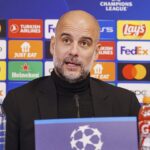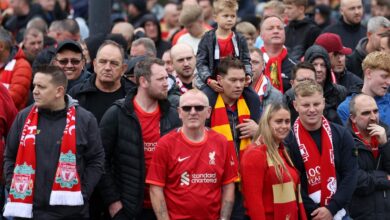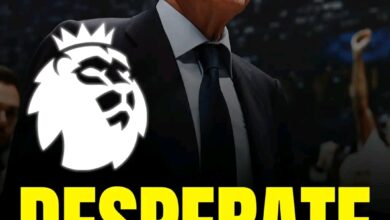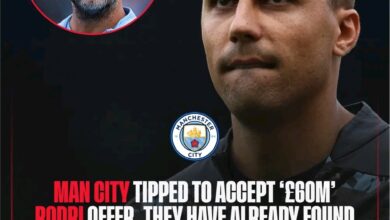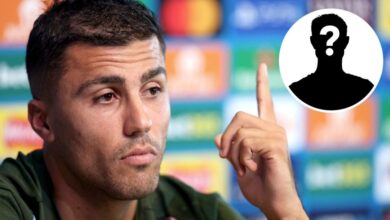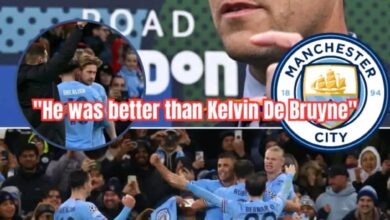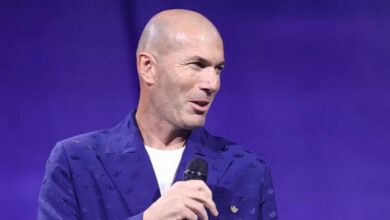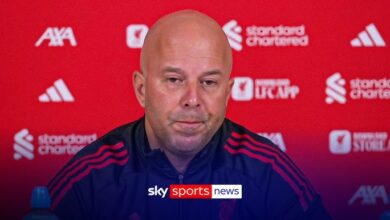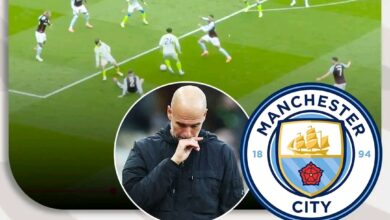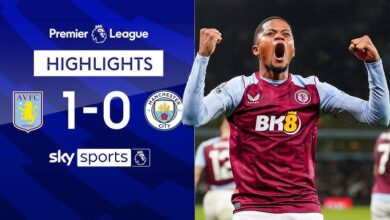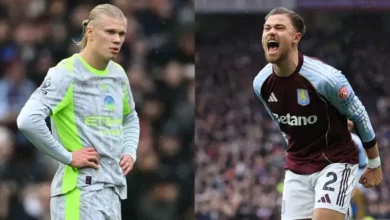6 Manchester City stars linked with exit from club as Pep Guardiola looks to streamline squad after Club World Cup exit
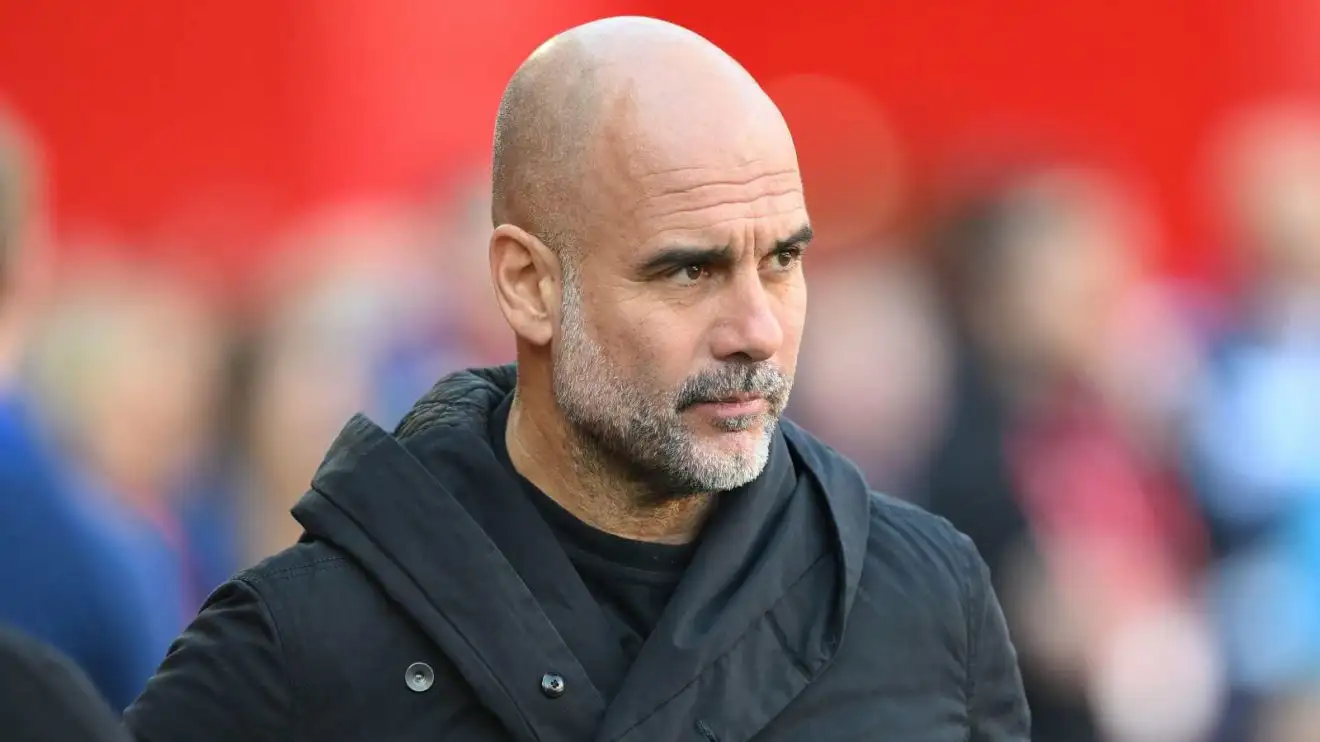
Manchester City’s 2024/25 campaign will be remembered as the season when their seemingly unstoppable machine finally ground to a halt. For four consecutive years between 2020 and 2024, Guardiola’s side had dominated English football, claiming Premier League title after Premier League title with the kind of ruthless efficiency that had become their trademark. The Catalan manager had crafted a team that seemed almost invincible, built around a core of world-class talent and a tactical system that had revolutionized modern football.
However, the cracks that had been expertly papered over for years suddenly became gaping fissures when their most crucial player suffered a devastating injury. Rodri’s severe ACL injury early in the season proved to be the catalyst for City’s dramatic downfall, exposing vulnerabilities that had been carefully masked by the Spanish midfielder’s exceptional ability to control games from the base of midfield.
The Ballon d’Or winner’s absence left City alarmingly exposed in defense, and without his metronomic passing and tactical intelligence, the team’s intricate passing patterns began to break down. What had once been a well-oiled machine became a collection of talented individuals struggling to find their rhythm and cohesion.
The impact was immediate and devastating. City’s title challenge, which had seemed almost guaranteed at the season’s start, crumbled around the New Year. Their form fell off a cliff in spectacular fashion, with defeats piling up and their trademark dominance evaporating. The psychological blow of losing their most important player seemed to permeate through the entire squad, affecting confidence and performance levels across the board.
Guardiola’s Commitment and the False Dawn
In what many saw as a defining moment for the club’s future, Pep Guardiola made the surprising decision to sign a new two-year contract extension during the midst of their struggles. The announcement was expected to provide a much-needed boost to morale and galvanize both players and fans, signaling the manager’s continued commitment to the project and his belief in the squad’s ability to bounce back.
However, the reality proved far more complex than the optimistic projections. Rather than providing the expected lift, Guardiola’s contract extension seemed to coincide with an even more dramatic deterioration in form. The team’s performances continued to spiral downward, with the kind of capitulations that had once been unthinkable for a Guardiola side becoming increasingly common.
The manager, renowned for his tactical innovations and ability to motivate his players, found himself facing perhaps the greatest challenge of his illustrious career. The systems and approaches that had brought such success in previous seasons suddenly seemed outdated and ineffective. Players who had been integral to City’s success began to look lost and confused, struggling to adapt to the new reality of life without their midfield anchor.
It was only during the final stretch of the season, in what many described as a last-gasp effort to salvage something from a disastrous campaign, that City began to show signs of improvement. Their late-season revival was just enough to secure Champions League qualification, avoiding what would have been a catastrophic failure to reach Europe’s premier competition.
The Financial Response: Winter Window Spending Spree
Recognizing the severity of their situation, City’s hierarchy made the bold decision to bring forward their planned squad rebuild, abandoning their usual patient approach to the transfer market. The club’s response was swift and decisive, as they became Europe’s biggest spenders during the winter transfer window in an unprecedented show of financial muscle.
The January spending spree represented a dramatic departure from City’s usual transfer strategy. Historically, the club had been methodical in their approach to recruitment, carefully identifying targets and negotiating deals over extended periods. However, the crisis of the 2024/25 season demanded immediate action, and the club’s leadership was prepared to pay premium prices to address their squad’s glaring deficiencies.
This aggressive approach to the transfer market continued into the summer, with City establishing themselves as the second-biggest spenders of the window with an overall investment of approximately £109 million. The figures represent a significant commitment from the club’s ownership to restore City to their former glory, regardless of the financial cost.
The urgency of their situation was further highlighted by their rushed attempts to complete signings before the Club World Cup, demonstrating how desperate they had become to find solutions to their on-field problems. The club’s executives worked around the clock to identify and secure targets, often paying inflated prices for players who might have been available for less in different circumstances.
Club World Cup Heartbreak: The Final Straw
City’s participation in the Club World Cup was viewed as an opportunity to salvage something positive from a largely disappointing season. The tournament, featuring the world’s best club teams, represented a chance for redemption and a platform to demonstrate that their struggles were behind them.
However, their campaign ended in dramatic and painful fashion with a remarkable seven-goal thriller against Saudi Pro League side Al-Hilal in the round of 16. The match, which went to extra time, epitomized City’s season – moments of brilliance overshadowed by defensive fragility and a lack of composure in crucial moments.
The defeat was particularly galling given the opposition. While Al-Hilal had invested heavily in high-profile players, they were still not considered to be on the same level as Europe’s elite clubs. For City to be eliminated by a Saudi Arabian side in such spectacular fashion added insult to injury and provided further evidence that their problems ran deeper than many had initially realized.
The match itself was a microcosm of City’s season – thrilling for neutrals but heartbreaking for the club and its supporters. The team’s ability to score goals remained intact, but their defensive vulnerabilities were exposed once again, ultimately proving costly in the most important moments.
The Chopping Block: Six Stars Face Uncertain Futures
Following their Club World Cup exit, attention has turned to the inevitable squad reconstruction that will define City’s summer. According to reports, six high-profile players find themselves on what has been described as the “chopping block,” with their futures at the Etihad Stadium now in serious doubt.
The players facing uncertain futures represent a cross-section of City’s squad, from established stars to promising youngsters who have struggled to establish themselves in the first team. Jack Grealish, John Stones, Ilkay Gündogan, Kalvin Phillips, Kyle Walker, and James McAtee have all been identified as potential departures as Guardiola seeks to streamline his squad.
The manager’s desire to avoid a “bloated dressing room” has become a driving force behind the club’s transfer strategy. Guardiola has always been particular about squad harmony and the importance of every player feeling valued and involved. With several players struggling for regular game time and others failing to meet expectations, the decision to reduce the squad size makes tactical and psychological sense.
Grealish: The Most High-Profile Casualty
Among the six players facing potential exits, Jack Grealish’s departure is being described as “almost certain” and represents the most high-profile casualty of City’s rebuild. The English winger’s situation has become increasingly untenable, with his limited playing time and failure to establish himself as a key player under Guardiola making his future at the club highly uncertain.
Grealish’s struggles at City have been well-documented since his record-breaking £100 million transfer from Aston Villa. Despite flashes of brilliance and moments of individual quality, he has never quite managed to consistently reproduce the form that made him one of the Premier League’s most coveted players during his time at Villa Park.
The player himself has been made aware of his precarious position and has been told in no uncertain terms that he needs to be playing at the highest level every week if he harbors ambitions of returning to the England squad. The Three Lions’ depth in attacking positions means that fringe players like Grealish cannot afford to be peripheral figures at their clubs.
Interest in Grealish is reportedly growing from abroad, with several clubs monitoring his situation closely. However, the player is understood to prefer remaining in England if the right opportunity presents itself, recognizing that a move to a foreign league might further complicate his international aspirations.
The complexity of any potential deal involving Grealish cannot be understated. His massive transfer fee and substantial wages – reportedly £350,000 per week – make him one of the most expensive players in world football. Any club looking to sign him permanently would need to make a significant financial commitment, both in terms of transfer fee and ongoing salary obligations.
As a result, a loan move is currently being viewed as the most feasible solution for all parties involved. This arrangement would allow City to reduce their wage bill while giving Grealish the opportunity to play regular first-team football elsewhere. From the player’s perspective, a loan would provide the platform he needs to rebuild his career and potentially earn his way back into international contention.
Several Premier League clubs have expressed interest in Grealish’s services. Newcastle United, with their ambitious project and substantial financial resources, represent an attractive destination for the winger. The Magpies’ involvement in European competition would provide Grealish with the high-level football he craves while allowing him to remain in familiar surroundings.
Everton, despite their recent financial struggles, have also been linked with a move for Grealish. The Merseyside club’s need for creative talent and their Premier League status make them another potential destination, though their ability to meet his wage demands remains questionable.
Tottenham Hotspur represent perhaps the most intriguing option for Grealish. The North London club’s attacking philosophy and their need for wide players could provide the perfect environment for him to rediscover his best form. Playing under a manager who values technical ability and creativity could be exactly what Grealish needs to revive his career.
Interest from overseas has also materialized, with Serie A giants Napoli and AC Milan both making contact regarding a potential move. The Italian clubs’ interest adds another dimension to the transfer saga, though Grealish’s preference for remaining in England may ultimately prove decisive.
The Supporting Cast: Other Departures on the Horizon
While Grealish’s situation has attracted the most attention, the futures of his five teammates remain equally uncertain. John Stones, once considered one of the finest center-backs in world football, has seen his role diminish significantly over the past season. Injuries and loss of form have contributed to his decline, and at 31, he may be viewed as a player whose best years are behind him.
Ilkay Gündogan’s second stint at City has failed to recapture the magic of his initial period at the club. The German midfielder’s return from Barcelona was met with enthusiasm, but his performances have been inconsistent, and his age profile doesn’t align with the club’s apparent desire to build for the future.
Kalvin Phillips represents one of the most disappointing transfers in City’s recent history. The England international’s move from Leeds United was supposed to provide depth and competition in midfield, but he has struggled to adapt to Guardiola’s tactical demands and has been largely peripheral to the team’s plans.
Kyle Walker’s situation is perhaps the most complex of the group. The England right-back has been a crucial player for City over many seasons, but his advancing years and occasional lapses in concentration have raised questions about his long-term future. His experience and leadership qualities remain valuable, but the club may feel that now is the right time to plan for his replacement.
James McAtee represents the future that might have been for City’s academy system. The young midfielder has shown flashes of promise but has struggled to establish himself in the first team. His potential departure would represent a failure of the club’s youth development system and a missed opportunity to blood homegrown talent.
The Goalkeeping Conundrum
Beyond the six players explicitly mentioned as being on the chopping block, speculation continues to swirl around the future of goalkeeper Ederson. The Brazilian shot-stopper has been admired by clubs in Saudi Arabia, where the financial packages on offer could prove tempting for both player and club.
Ederson’s potential departure would represent a significant shift for City, given his importance to Guardiola’s tactical system. The goalkeeper’s distribution and ability to play out from the back have been crucial components of City’s playing style, and finding a suitable replacement would be a challenging task.
However, City have publicly suggested that Ederson is staying, indicating that they view him as too important to lose. The club’s stance may be influenced by the difficulty of finding a goalkeeper of comparable quality and the potential disruption that his departure could cause to their tactical approach.
The Untouchables: Foden’s Delicate Position
Not all players face uncertain futures, with Phil Foden being specifically mentioned as “too iconic to be considered for transfer” despite his role being described as “delicate.” The England international’s status as a homegrown talent and his undeniable quality make him virtually untouchable in any potential clearout.
Foden’s situation highlights the complexity of squad management at the highest level. While he may not be guaranteed a starting position, his value to the club extends beyond his on-field contributions. As a product of City’s academy system and a player who embodies the club’s values, he represents continuity in a period of significant change.
The description of his role as “delicate” suggests that Guardiola is still working to find the best way to utilize Foden’s talents within his tactical system. The player’s versatility and technical ability make him a valuable asset, but his exact position and role in the team’s structure remain subjects of ongoing discussion.
The Broader Context: Financial Fair Play and Strategic Planning
City’s summer rebuild is taking place against the backdrop of ongoing Financial Fair Play investigations and increased scrutiny of their financial practices. The club’s significant spending in recent transfer windows has raised questions about their compliance with UEFA and Premier League regulations, adding another layer of complexity to their transfer planning.
The need to balance their books while maintaining competitive standards has become increasingly challenging. The potential sale of high-profile players like Grealish could provide significant funds to reinvest in the squad, but it also risks weakening the team’s overall quality and depth.
Strategic planning has become more important than ever for City’s hierarchy. The club must identify players who can contribute immediately while also considering long-term sustainability. The days of unlimited spending may be coming to an end, making every transfer decision crucial to the club’s future success.
Looking Ahead: The New Era
As City prepare for what promises to be a transformative summer, the club stands at a crossroads that will define their future trajectory. The decisions made in the coming months will determine whether this period represents a temporary setback or the beginning of a new chapter in the club’s history.
Guardiola’s commitment to the project provides stability and continuity, but the manager will need to demonstrate his ability to rebuild and regenerate his squad. The tactical innovations and man-management skills that brought previous success must now be applied to a new generation of players and different challenges.
The summer transfer window will provide the first clear indication of City’s direction. The players who arrive and those who depart will signal the club’s ambitions and their vision for the future. Success in the transfer market could quickly restore City to their former glory, while failure could lead to further struggles and questions about the club’s long-term prospects.
The 2025/26 season will be crucial in determining whether City can return to the summit of English and European football. The club’s supporters will be watching closely as their team attempts to write a new chapter in their illustrious history, one that could either represent redemption or continued decline.
The coming months will reveal whether Manchester City can successfully navigate this period of transition and emerge stronger than before. The stakes have never been higher, and the decisions made now will resonate for years to come. Only time will tell if this summer of reckoning will prove to be the catalyst for renewed success or the beginning of a prolonged period of uncertainty.
